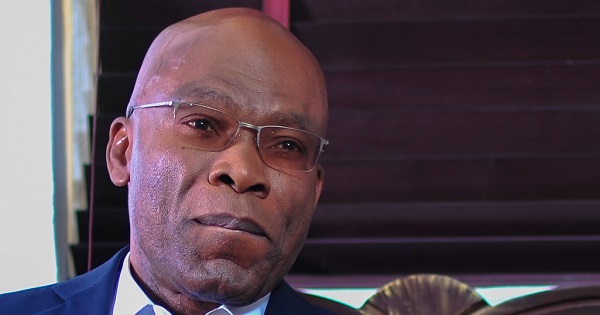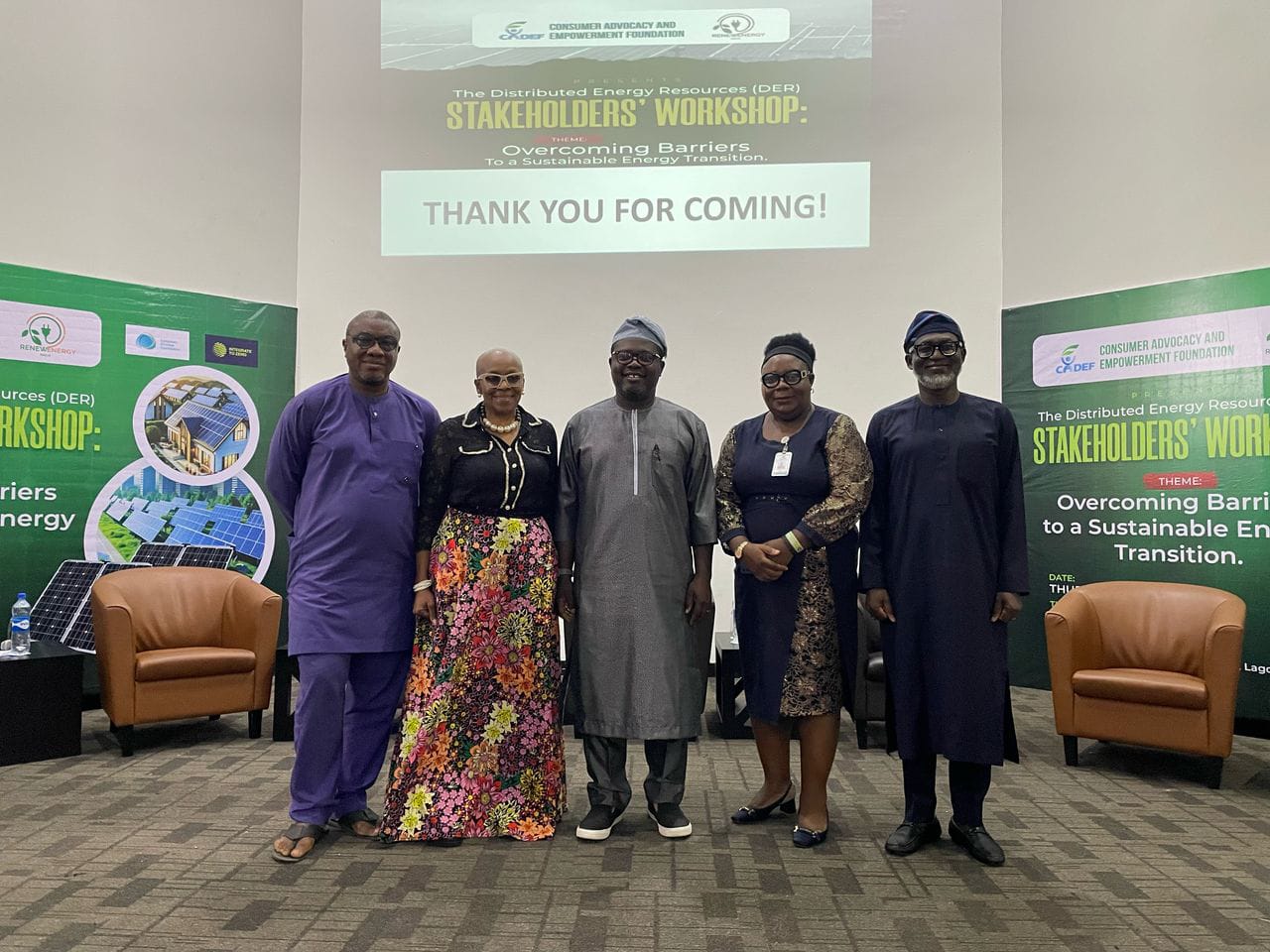This is contained in a statement signed by Dr Ejike Ndiulo, head of Corporate Communications, Air Peace, on Wednesday in Lagos.
According to Ndiulo, the decision is necessary because NiMet is the agency responsible for issuing CNH (Current Nowcast of Hazardous Weather) reports, critical for safe landings, especially during this season of heavy rainfall and thunderstorms.
He said without these reports from the control tower, flight safety could not be guaranteed.
“As a safety-first airline, we have chosen to act responsibly by suspending operations until NiMet resumes full service.
“We understand this may cause inconvenience, and we sincerely apologise. Passengers will be contacted with updates and options for rescheduling,” he said.
The staff of NiMET on Tuesday commenced an indefinite strike over the condition of service and other demands.
News
Leo Stan Ekeh and the Price for Success

By Adesh Kalpesh
Recently, there has been a sudden burst of corporate blackmail aimed at one of Africa’s most illustrious entrepreneurs, Leo Stan Ekeh.

Leo Stan Ekeh
Most appalling is the pettiness and clear lack of intelligence displayed by the clique of blackmailers and their hirelings.
It got me thinking about how much premium Africans place on their brightest and best, especially those who by sheer dint of hard work, tenacity, courage to dare the odds, have chiselled their way from the lowest nadir of their enterprise to the top of it.
Leo Stan, as he’s simply called, is in this class of rare African achievers. And he did it in the mentally-engaging and knowledge-demanding Information Communications Technology, ICT, turf.
I knew Leo Stan decades back in his undergraduate days at the Panjab University, Chandigarh, one of the oldest universities in India established since 1882.
At that time, there was a sizeable sprinkling of African students in India and Panjab University was no exception.
I had a good number of Africans at that time as friends and acquaintances. But young Leo Stan was special. He was gregarious, affable and outgoing.
It was easy to notice him in a crowd: rangy and endowed with gift of presence. Besides his imposing height, you could tell from the manner he got going with the cosmopolitan university community that he’s cut out for the big stage.
Most people knew him as Leo Stan; only a few knew his full name, Leonard Stanley Ekeh.
He was a man on a mission whose genial and studious disposition tells you he was not there just to add to the number.
The quest for knowledge and a burning desire for self-discovery drove him into the hallway of adventure. He soon distinguished himself both socially and academically to earn the respect of fellow Africans and recognition from the university authorities.
In no time, he was leader of the African students’ contingent in Panjab and instantly became their voice in the university community.
At that time, India had already become the breeding ground for outliers. Graduates from Indian universities got straight employment at Microsoft, Wall Street, the New York Stock Exchange and other top corporations across the United States and Europe.
Some others got straight into entrepreneurship and made a success of it.
Such was the high profile of Indian universities noted for their lavish infusion of numerate skills into their curriculum.
It was therefore no surprise to me when many years after, the name Leo Stan became a household name in Africa ICT ecosystem.
The man I once knew as a restless, zesty African student has turned his energy to creating values, creating wealth and jobs for many.
Rather, what has come to me and perhaps others who knew him and have followed his life’s odyssey from India to United Kingdom and back to Africa, as a surprise is the desperation by his own people to pull down the man who gave Africa a voice in the global ICT space, an area where India has become a global force. India has created tech billionaires in this century.
The Shiv Nadar family, Azim Premj family, Jay Chaudhry, Byju Raveendran among others make up this list of worthy Indians. Some of these entrepreneurs just like Leo Stan and many others across the world built their businesses from the scratch. Indians can tell their story.
They praise them for their industry and stellar example. They don’t blackmail them for being successful or try to pull them down.
These tech entrepreneurs play critical roles as enablers of India economy. For this, the government and the people protect them. This is what is lacking in Africa.
Those who show capacity to create wealth through entrepreneurship are often left to the vagaries of jealous competitors and atrocious blackmail from those who are failing and even those who have failed in their businesses.
Trying to link Leo Stan and any of the companies associated with his name to unhealthy corporate governance smacks of desperation and primitive show of disrespect for a man whose collateral is integrity.
Any African who plays big in the Africa ICT marketplace knows that without integrity, you cannot have as much as a handshake with global brands like Microsoft, Apple, HP, Samsung, among others.
It’s the nature of ICT. Here, the game is not measured by the depth of your pocket.
It’s a function of trust, your capacity to make your word your bond. This must reflect on how much of technical competence you have, enough to keep your technology and service ready, functional and available.
Leo Stan had long established all this and it’s to his credit that Microsoft, Samsung, HP, Apple and others have not only established strong technical presence in Nigeria which has led to knowledge transfer to young Nigerian techies, but has also created thousands of direct and indirect jobs across different demographics and human resource cadres.
So, why blackmail such a man? Why try to pull him down just because he has succeeded where many failed?
Success is not served on a platter. For a man who has built a world-class African brand, Zinox, as a counterfoil to the dominance of exotic brands, national and continental garlands ought to be his reward, not a blizzard of unintelligent blackmail.
At the twilight of last year, President Muhammadu Buhari conferred the prestigious National Productivity Order of Merit (NPOM) award on Leo Stan, Oba Otudeko, Aliko Dangote, Tony Elumelu and other distinguished Nigerians.
This is how to reward your best. India has similar reward system, a roll call of national honours.
It’s to encourage those who have helped to build the society through industry, service and philanthropy.
Shiv Nadar, for instance, holds the Padma Bhushan award for “distinguished service of a high order”. Padma Bhushan is the third-highest civilian award in India.
My long stay in Africa has exposed me to the treachery in corporate Africa. Corporate blackmail is everywhere in the world but it’s how institutions of government handle it that makes all the difference.
African governments must do more to protect their shining stars in entrepreneurship.
In spite of the rash of blackmail against Microsoft, Facebook, Amazon and other mega-corporations., the US government still finds a way to protect them just so they will keep them going and protect millions of jobs allied to them.
Nigerian government must strive at all times to protect the likes of Aliko Dangote, Mike Adenuga, Tony Elumelu, Leo Stan Ekeh, Oba Otudeko and others. These are genuine African brands who have shattered all ceilings and erased all stereotypes about the capacity of Africans to do great things.
Hilary Hinton, more popularly known as Zig Ziglar, the American inspirational author and salesman, once made a poignant statement which should be a soothing balm for successful people.
He said: “You do not pay the price of success, you enjoy the price of success.”
Leo Stan and all those who have been and are being blackmailed should ‘enjoy’ the discomfort of blackmail while it lasts. As we say in India, let the problem build you, not break you.
- Mr. Kalpesh writes from Accra, Ghana
News
Lagos Sets the Benchmark in Renewable Energy as CADEF Launches Transformative Platform

Against the backdrop of Lagos State’s proactive efforts to reform its electricity sector, the Consumer Advocacy and Empowerment Foundation (CADEF) has launched its ‘Renew Energy Nigeria’ platform, a nationwide initiative with potential synergies for the state’s ambitious energy goals.

Professor Chiso Ndukwe-Okafor, CADEF’s Executive Director, introduced the platform in Lagos, highlighting its aim to empower Nigerians with information and access to decentralized renewable energy (DER) solutions. “The launch of this platform marks a significant step towards democratizing access to information and resources within Nigeria’s burgeoning sustainable energy sector.”
The platform’s launch comes as Lagos State, under the Lagos State Electricity Law, is actively establishing a regulatory framework and attracting private sector investment. Kamaldeen Abiodun-Balogun, General Manager of the LSEB, detailed the state’s progress in creating a functional electricity market, ensuring payment security, and addressing infrastructure challenges. “This law enabled us to create policy documents and establish regulatory agencies to initiate the implementation of the Lagos electricity market,” he explained, adding that private sector involvement will be key in areas where existing Discos face performance issues.
Segun Adaju, a private sector player deeply engaged in the energy sector, lauded Lagos State’s leadership. “In all these, Lagos State is always setting the pace. Many of us in the private sector players like myself, we are also looking up to Lagos State to set the pace,” he said, also mentioning his work on the Centralized Renewable Energy Desk for the state government.
While acknowledging national-level challenges such as import restrictions and forex fluctuations as noted by Professor Ndukwe-Okafor: “The recent federal plan on restrictions on the importation of solar products and the fluctuation of forex rate have made clean energy solutions costly”, the focus on Lagos State’s progress suggests a promising local environment for DER adoption, potentially amplified by CADEF’s new platform.
The broader socio-economic context, as highlighted by Olumide Ajayi, “Over 40% of Nigerians do not have access to reliable electricity”, underscored the importance of initiatives like ‘Renew Energy Nigeria’ and the enabling policies being implemented in states like Lagos.
Professor Ndukwe-Okafor concluded with a powerful call to action. “This platform is not an isolated intervention. It is aligned with our ideal country’s national vision, the 30-30-30 initiative. Let us not build a solar future that only serves the wealthy. Let us democratize clean energy. Let us make it local, inclusive, and scalable.”
The launch of “Renew Energy Nigeria” marks a significant step towards a more sustainable and equitable energy future for Nigeria, driven by innovation, collaboration, and a commitment to empowering its citizens. The platform is now live and accessible to all Nigerians seeking reliable and clean energy alternatives
News
EFCC Secures Arrest Warrant for Six CBEX Promoters

A federal high court in Abuja has granted permission to the Economic and Financial Crimes Commission (EFCC) to arrest and detain six Crypto Bridge Exchange (CBEX) promoters over allegations of investment fraud to the tune of over one billion dollars.

Emeka Nwite, presiding judge, gave the order following an ex parte application moved by Fadila Yusuf, counsel to the EFCC.
In the application by the EFCC, the six suspects are Adefowora Olanipekun, Adefowora Oluwanisola, Emmanuel Uko, Seyi Oloyede, Avwerosuo Otorudo and Chukwuebuka Ehirim.
The commission sought an order of the court for a warrant of arrest of the defendants.
They also prayed the court for “an order remanding the defendants in the custody of the complainant/applicant pending the conclusion of investigation of the alleged offences and possible prosecution”.
Yusuf said that the defendants are at large and a warrant of arrest is required to arrest the defendants for proper investigation and prosecution of this case.
In the affidavit in support of the motion, the EFCC said preliminary investigation into the intel revealed that the defendants “using their company ST Technologies International Limited, promoted another company Crypto Bridge Exchange (CBEX) by making adverts and lured unsuspecting members of the public to invest crypto cryptocurrencies on the CBEX investment platform”.
The EFCC said the defendants promised an unrealistic return on investment of up to 100 percent.
“The victims were made to convert their digital assets into a stablecoin of USDT for onward deposit into the suspects’ crypto wallet,” Yusuf said.
“The victims were initially given full access to the platform to monitor their investment.
“Following the deposits valued at over $1 billion by the victims, the CBEX investment platform became inaccessible to them, and they could no longer withdraw from the investment made.
“The victims later discovered that the said scheme is a scam.
“During the course of investigation, it was discovered that the said ST Technologies International Limited, though registered with the Corporate Affairs Commission (CAC), it was not registered with the Securities and Exchange Commission (SEC) for investment purposes.
“It was also discovered during the investigation that the defendants had moved out of their last known address in Lagos and Ogun states.”
The anti-graft agency said obtaining a warrant of arrest was necessary in order to place the defendants on a watch list, enabling authorities to trace and apprehend the suspects to face the charges brought against them.
Nwite granted the request for a warrant of arrest and remand, adding that the order was necessary to enable the commission to apprehend the defendants and conclude its investigation.
“I have listened to the submission of the learned counsel for the applicant,” Nwite said.
“I have also gone through the affidavit evidence with exhibits thereto, along with the written address.
“I am of the view and I so hold that the application is meritorious.
“Consequently, the application is granted as prayed.”
Earlier in April, reports emerged that CBEX users could no longer withdraw their funds.
On Monday, angry investors stormed and looted the office of Smart Treasure (ST Team), an affiliate of CBEX, in Ibadan, Oyo State.
The EFCC recently confirmed receiving multiple complaints about the platform.
Dele Oyewale, the commission spokesperson, assured affected investors that efforts were underway to recover their funds.
News
Air Peace Suspends Flight Operations Nationwide


 E-Business2 days ago
E-Business2 days agoALX Nigeria Launches 2025 Ventures Incubator, Premieres Pan-African “Do Hard Things” Finale

 Telecom23 hours ago
Telecom23 hours agoMTN Appoints Egerton Idehen as Chief Broadband Officer

 General News23 hours ago
General News23 hours agoUBA Marks 75 Years of Excellence at 65th AGM

 Telecom23 hours ago
Telecom23 hours agoMTN Foundation Launches Skills Academy to Bridge Nigeria’s Digital Skills Gap

 Telecom23 hours ago
Telecom23 hours agoMTN Group Suffers Cyberattack

 E-Financial2 days ago
E-Financial2 days agoInsurance Bill Seeks Compensation for Customers of Failed Firms

 Telecom23 hours ago
Telecom23 hours agoLegend Internet Plc Makes History as First Indigenous Telecom Firm on NGX

 E-Financial2 days ago
E-Financial2 days agoFintechs Add $18m to New Tax Initiative


























